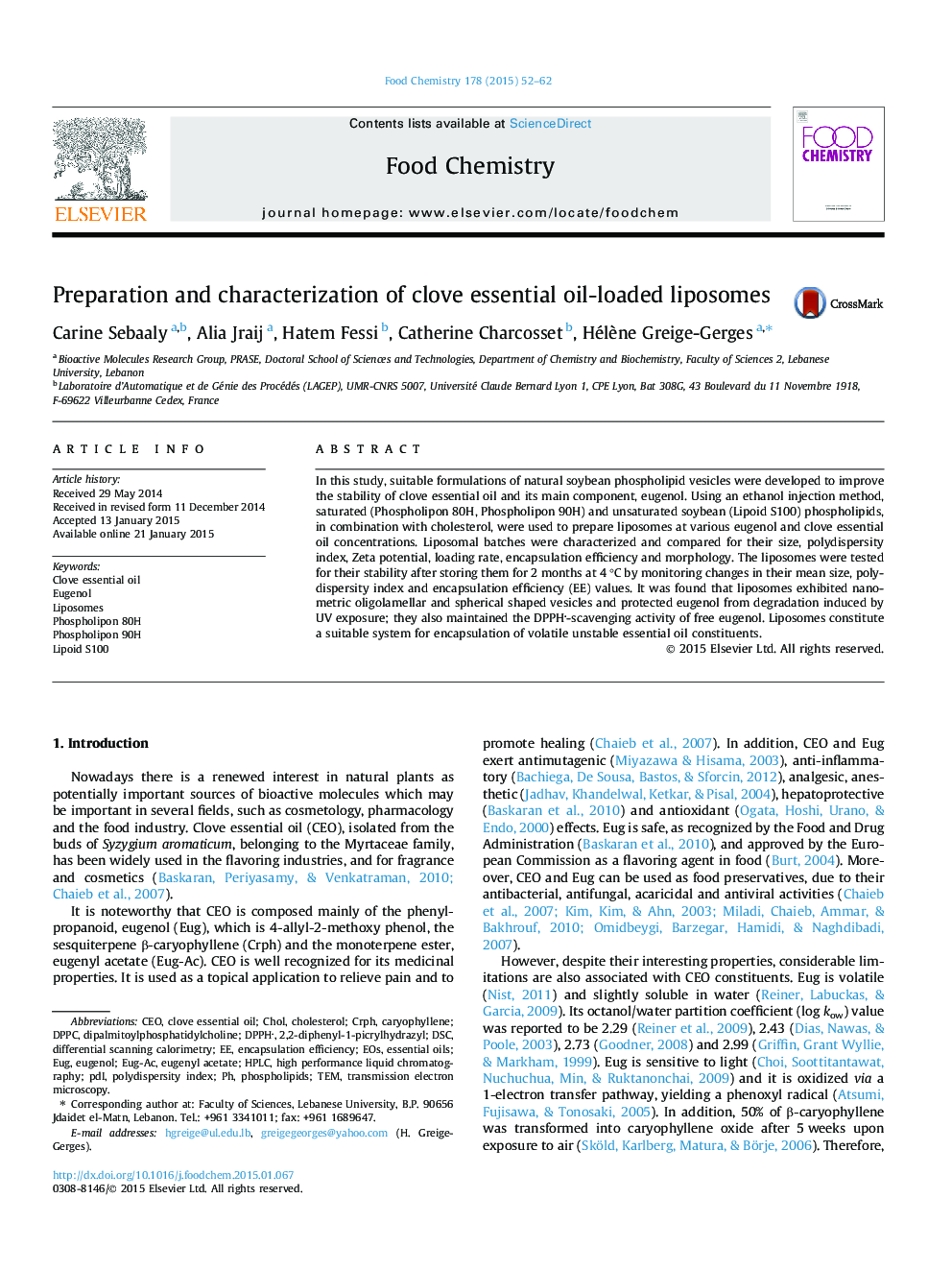| Article ID | Journal | Published Year | Pages | File Type |
|---|---|---|---|---|
| 7592242 | Food Chemistry | 2015 | 11 Pages |
Abstract
In this study, suitable formulations of natural soybean phospholipid vesicles were developed to improve the stability of clove essential oil and its main component, eugenol. Using an ethanol injection method, saturated (Phospholipon 80H, Phospholipon 90H) and unsaturated soybean (Lipoid S100) phospholipids, in combination with cholesterol, were used to prepare liposomes at various eugenol and clove essential oil concentrations. Liposomal batches were characterized and compared for their size, polydispersity index, Zeta potential, loading rate, encapsulation efficiency and morphology. The liposomes were tested for their stability after storing them for 2 months at 4 °C by monitoring changes in their mean size, polydispersity index and encapsulation efficiency (EE) values. It was found that liposomes exhibited nanometric oligolamellar and spherical shaped vesicles and protected eugenol from degradation induced by UV exposure; they also maintained the DPPH-scavenging activity of free eugenol. Liposomes constitute a suitable system for encapsulation of volatile unstable essential oil constituents.
Keywords
EugDSCDPPCCHOLPDIDPPH2,2-diphenyl-1-picrylhydrazylClove essential oilEugenolTemEncapsulation efficiencydipalmitoylphosphatidylcholineEssential oilspolydispersity indexEOsPhospholipidsLiposomesCEOTransmission electron microscopyCaryophylleneDifferential scanning calorimetryhigh performance liquid chromatographyHPLCcholesterol
Related Topics
Physical Sciences and Engineering
Chemistry
Analytical Chemistry
Authors
Carine Sebaaly, Alia Jraij, Hatem Fessi, Catherine Charcosset, Hélène Greige-Gerges,
